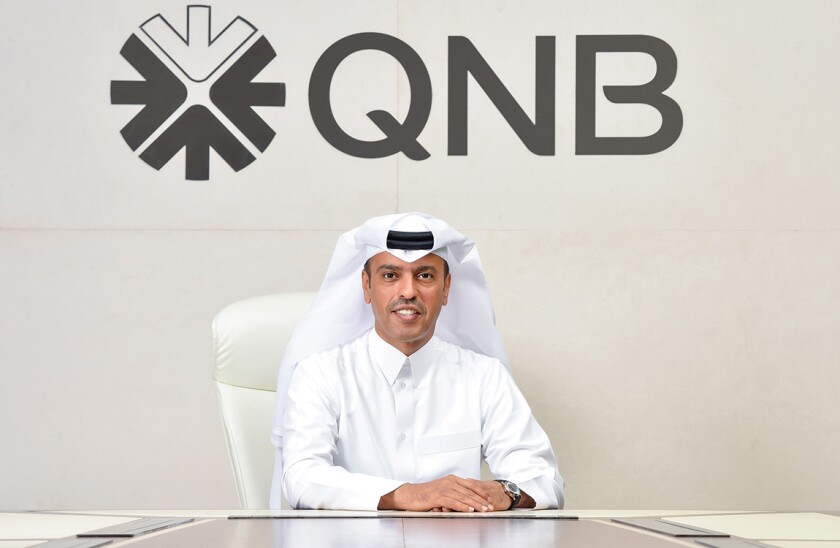How is the bank supporting Qatar’s long-term development goals, particularly in areas like infrastructure, education or entrepreneurship?
QNB’s purpose is to promote prosperity and growth in the societies where we operate. Our mandate is to act as a financial intermediary to support the economic and social development of the State of Qatar. Over the decades, QNB has been pivotal in driving progress, supporting national strategic projects through infrastructure and investment financing. This has helped Qatar become one of the richest, most secure and stable countries in the world, with ample financial resources, a business-friendly environment and state-of-the-art infrastructure.
Since its inception, QNB has been a major contributor to the development of the supply chain that enabled Qatar to become one of the largest liquefied natural gas exporters globally. QNB also supported the inception and growth of national champions such as Qatar Energy, Qatar Airways, Ooredoo, Qatar Foundation and others. Furthermore, QNB has financed the country’s infrastructure build-up including roads and the railway network, airport and port, utilities, as well as social infrastructure such as healthcare and education.
What role is the bank playing in supporting SMEs and expanding financial inclusion across Qatar?
The banking sector plays a crucial role in supporting this transition. Banks like QNB act as a one-stop shop through their various financing services, transaction banking services — such as trade finance and cash management — payments, merchant banking and e-commerce-related services. QNB is committed to providing the necessary financial resources and expertise to support the development of new industries and innovation. This involves facilitating investments in sectors such as manufacturing, tourism, healthcare and education, logistics, technology, smart cities and renewable energy.
We at QNB believe that financial inclusion is essential to achieve social equality and economic empowerment. Across the Group, we play a key role in bringing affordable and accessible financial services and products to underserved segments. QNB is committed to promote inclusion for all, starting with the unbanked, the youth and other customer focus areas.
What initiatives has the bank launched to develop Qatari talent and strengthen the future leadership of the banking sector?
Aside from financial capital, we consider human capital essential for value creation. Our strategy is to be an employer of choice. Despite our international growth, we remain faithful to our Qatari roots and heritage, serving Qatari society and supporting the growth trajectory of our country.
Today, our Qatarisation ratio is in excess of 60%, the highest within the financial services and private sector of the country. As part of our ongoing training and development, we have introduced several transformative initiatives designed to equip future Qatari talent with essential skills and knowledge. Our succession planning process ensures continuity to develop an in-house leadership bench. Furthermore, we are committed to supporting the next generation of Qatari university graduates as well as talented young professionals through our dedicated national leadership programmes.
What progress has the bank made in offering sustainable finance products or integrating climate-related risks into its operations?
As one of the largest financial institutions in the Middle East and Africa, we recognize the importance of environmental, social and governance issues and have consequently embedded the topic of sustainability in our purpose, strategy, business, operating model and enterprise risk management framework.
Our sustainable financing activities are supported by our market-leading QNB Group Sustainable Finance and Product Framework. The SFPF allows us to structure financial instruments such as green loans, bonds, deposits, sustainability-linked loans and transition finance opportunities. This will enable us to promote ESG-themed opportunities.
Several years ago, we started to reflect the topic of climate risk as a new emerging risk category, which we integrated into our overall risk appetite and enterprise risk management framework. Since then, we regularly perform climate risk assessments to understand our climate exposure and have modelled climate risk scenarios until 2050. Furthermore, we have just this year concluded our group-wide climate change strategy that addresses the topic of climate risk as well as our commitment to climate transition. The strategy also captures how we internally integrate the topic of climate risk in our operating model to continuously reduce our greenhouse gas emissions and carbon footprint.
How is the bank enhancing the customer experience, and what technologies or services are you excited about introducing in the near future?
As part of our efforts to leverage innovation as a strategic enabler, we decided to further emphasise our digital transformation to move from physical to digital channels and reduce physical interaction to improve the customer experience across all touchpoints.
To date, 90% of our customer interfacing processes are already digitised. We are investing in our IT capabilities as an enabler for further digitisation through the adoption of new technologies and application modernisation, while also uplifting our IT and system security. We will further leverage digitisation to drive efficiency and automation through robotics, artificial intelligence, machine learning and the ongoing streamlining of our processes and systems.
Despite this drive of technological advancement across our business, we value the personal relationships and the human element of banking. Even in an increasingly digital and automated world, we believe that personal touch and technology can co-exist and complement each other.
